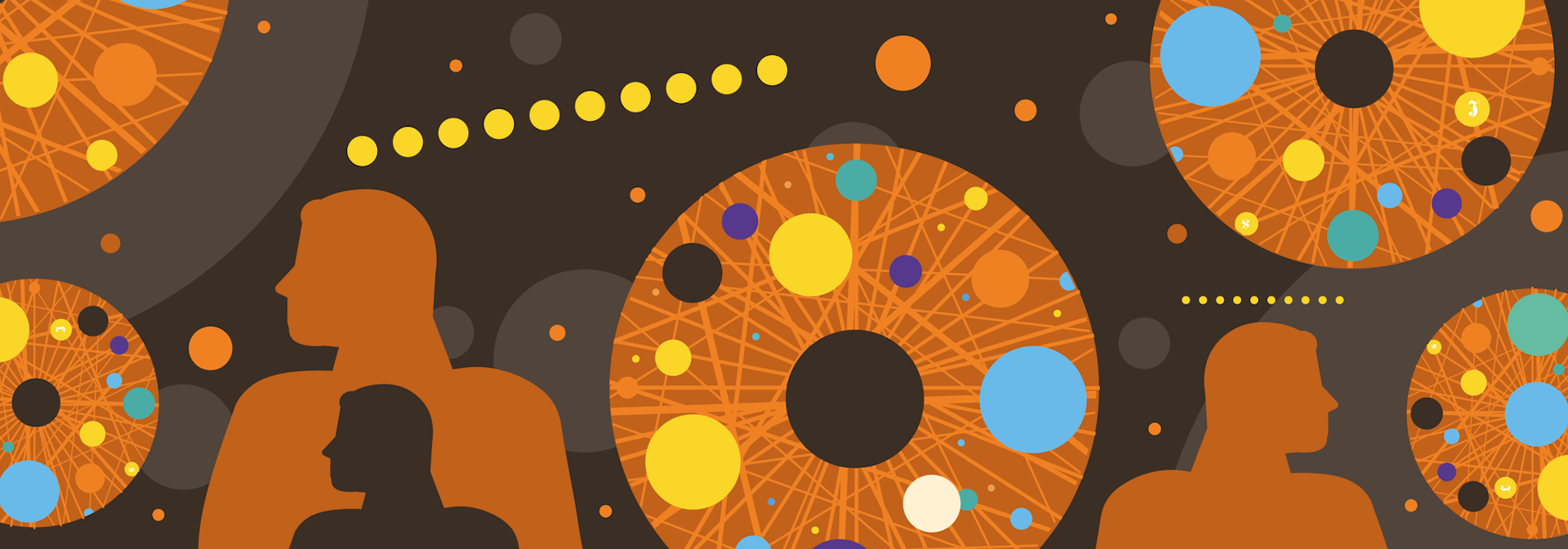
Learn more about 10 different types of personality disorders
In short, a personality disorder is a condition that affects the way that you think, feel, and behave. They might affect the way that you relate to others, and to yourself, and are usually long-term conditions that commonly begin in adolescence.
People with personality disorders might face a lot of stigma from the people around them, perhaps in part due to the media portrayal of these conditions, combined with a general lack of understanding and compassion. They might also experience other mental health problems such as depression, anxiety, and suicidal ideation.
That said, although those with personality disorders may need support from mental health professionals, many live healthy and fulfilling lives.
A diagnosis of a personality disorder is sometimes controversial. Mental health specialists can often hold different views on them, and the diagnoses have faced criticism for neglecting social context, and the term ‘personality disorder’ itself is sometimes thought to play a part in perpetuating stigma.
However, according to the NHS, in England it’s estimated that 1 in 20 people has a personality disorder, making the experience of facing one of these diagnoses more common than you may have initially thought. Here, we’re working through 10 types of personality disorders, and highlighting their individual traits.
Borderline personality disorder (BPD)
BPD is the most commonly diagnosed personality disorder, and is also sometimes referred to as emotionally unstable personality disorder (EUPD). Those with BPD might find that they have difficulties with the ways you think and feel about yourself and others – for example, you might fear being abandoned, have very intense emotions, struggle with a sense of self, and find maintaining relationships more difficult.
Antisocial personality disorder
Those with antisocial personality disorder may regularly act from a place of anger or lack of consideration for others. This might lead to putting yourself in dangerous situations without considering the consequences, or acting on impulses in a way that might be unpleasant for others. You may struggle to have empathy for others, and find that you don’t have a sense of guilt that others around you might show in the same situations.
Histrionic personality disorder
Histrionic personality disorder can come with a distorted image of the self, and an intense desire to be noticed by other people and to gain their approval. You might find that you make rash decisions in order to gain this attention, or are easily influenced by the people around you. Additionally, you might also go to extreme lengths to be the centre of attention, and might feel uncomfortable when you are not.
Narcissistic personality disorder
Someone who has narcissistic personality disorder may have very intense beliefs that they are better or more deserving than others, while at the same time struggling with self-esteem to the point where they rely on others recognising their worth in order to feel better. You might feel very envious of others’ successes, put your needs above others, or come across as dismissive of others’ needs.
Paranoid personality disorder
This personality disorder is characterised by feelings of intense paranoia, which may then lead you to struggle to maintain relationships with those around, find it hard to trust others or to relax. And you might also see threats in everyday situations, where others may not.
Schizoid personality disorder
Although related to schizophrenia and schizoaffective disorder, schizoid personality disorder shares some of the traits but usually does not have psychotic symptoms. That said, the symptoms you might experience are difficulty forming close relationships, choosing to live in relative isolation, and finding it hard to relate to others or find pleasure in common activities.
Schizotypal personality disorder
With schizotypal personality disorder, you might behave or think in a way that makes it hard to relate to other people, and that might be due to distorted thoughts or perceptions about yourself and the world around you. You might feel anxious and paranoid, and believe that you have powers – and feel suspicious of those around you.
Avoidant personality disorder
Sometimes referred to as anxious personality disorder, avoidant personality disorder is characterised by feelings of intense anxiety that mean you are unable to connect with others, attend work, or join in with activities that mean you need to be around other people. You might also be very sensitive to criticism, worry about being rejected by others to the point where you avoid connections, and feel lonely and inferior to others.
Dependent personality disorder
Characterised by very intense feelings of needing other people, those with dependent personality disorder may find that they are unable to make everyday decisions without help or support from others, and may allow others to take other responsibility for many areas of their lives. This may come with low self-confidence, and the belief that others are more capable than you are.
Obsessive compulsive personality disorder (OCPD)
Though similar to obsessive compulsive disorder (OCD), obsessive compulsive personality disorder is used to describe a type of personality rather than just behaviours. Someone with this personality disorder might struggle with feelings of perfectionism and the need for control. You may have unrealistically high standards for yourself and others, and can feel very anxious when things don’t turn out the way you expect or wish them to.
If you think you might be affected by any of the conditions described above, speak to your GP to find out more.
For further information, including how counselling can support people with a personality disorder and to find a counsellor near you, visit Counselling Directory.

